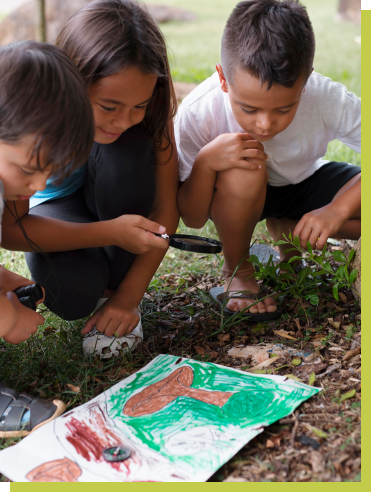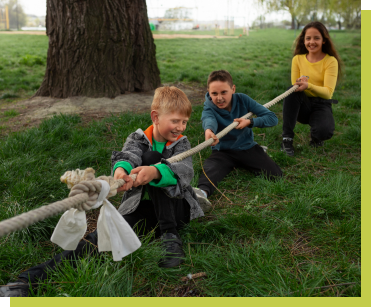Discover Successful Homeschooling in Austin Texas Today
-
 Practical Strategies while Homeschooling while working
Practical Strategies while Homeschooling while working
-
 Insights from Parents Homeschooling while working
Insights from Parents Homeschooling while working
-
 Encouraging Independence in Your Child’s Learning
Encouraging Independence in Your Child’s Learning
-
 Building a Supportive Community while Homeschooling while
working
Building a Supportive Community while Homeschooling while
working
-
 Is it possible to find fulfillment in the juggle of
homeschooling while working?
Is it possible to find fulfillment in the juggle of
homeschooling while working?
Are you considering homeschooling your child but concerned about the challenges of living in a rural area? Homeschooling in rural areas can present unique challenges, such as limited access to teaching resources and extra-curricular activities. However, it also provides opportunities for creative solutions and a unique learning experience.
- Overcome challenges with innovative solutions for a unique learning experience.
- Make the most of local assets to enhance your child's education, even in resource-limited areas.
- Navigate technology hurdles with our strategies, ensuring a well-rounded homeschooling experience even in rural settings.
Are you exploring homeschooling in rural areas? Discover the unique perks of homeschooling amidst rural charm. Dive into our blog with Great Homeschool Conventions for tips on turning challenges into triumphs! Learn to maximize local resources, navigate tech hurdles, and build a strong support network.
Understanding the Challenges of Rural Homeschooling
Starting homeschooling in rural areas presents distinct socialization obstacles. Limited internet access can impede educational efforts, while sparse support groups and community activities may further isolate families. Homeschooling parents in small towns often grapple with loneliness, and accessing resources proves challenging. Finding high school equivalents or connecting with public school programs last year can be demanding. Fostering playtime and involvement in organizations like Boy Scouts for young children can be daunting. Moreover, leveraging Facebook to connect with others may pose challenges when living miles away from crowded areas like Texas or Lincoln.
Coping with Isolation
Coping with isolation as a homeschooling parent in a rural area demands creativity in combating loneliness. Social media can be a valuable tool, enabling families to connect with others and share experiences. Local homeschooling groups offer essential support for families dealing with isolation, fostering a sense of community. Encouraging playtime with local families helps alleviate feelings of loneliness and enhances social interaction for young children. Engaging in community activities is vital for mitigating socialization issues and creating opportunities for homeschoolers to bond with their age peers.


Overcoming Limited Access to Teaching Resources
Achieving a balance between job, life, and school requires impeccable time management skills. Before you can manage your time, you need to understand where it's going. Not all tasks are created equal. Learn to identify the most important tasks (the ones that will move you closer to your goals) and focus on those first. Delegate, eliminate, or reschedule less important tasks. Working full-time while homeschooling demands a supportive community and a harmonious fit between business and educational needs. Critical to this balance is ensuring that job hours align with learning schedules, all while meeting the family’s needs. Maintaining harmony among these different aspects is essential for a successful juggling act.
Utilizing Available Resources in Rural Areas
Making the most of local community support networks is essential for rural homeschooling families. The countryside provides an ideal setting for practical lessons, offering a unique learning environment. Connecting with local families enhances the education experience and fosters a sense of community. Moreover, leveraging local community activities enriches homeschooled children's education, providing holistic learning experiences. Small-town homeschooling can fully utilize local resources to create a well-rounded education that complements the traditional high school curriculum.
Leveraging Local Community for Learning
Engaging in local community activities can support education in rural areas' learning objectives, fostering a rich social and learning environment through collaboration among local families. Homeschool groups in rural areas are crucial in creating community learning experiences, offering diverse educational opportunities through local field trips, and networking with other families. These interactions enhance the education experience, providing practical lessons and resources while encouraging play time and engagement with Boy Scouts and other community organizations. Leveraging the natural environment and local resources supports a holistic approach to education, complementing the academic curriculum with real-life experiences.


Making Use of Natural Environment for Practical Lessons
Making the most of the surrounding natural environment can provide
valuable hands-on learning experiences for homeschooling families
in rural areas. Integrating nature walks, outdoor exploration,
gardening, and farming into lessons offers practical and engaging
learning opportunities. Observing local wildlife and ecosystems
can be woven into education activities, inspiring creativity and
curiosity in young learners. Harnessing the rural surroundings
allows for a unique approach to education, enhancing the overall
learning experience for children.
Living in a rural area offers a unique opportunity to enrich your
learning experience by leveraging the local community and natural
environment. Here's how you can make the most of it:
Connect with Local Families:
- Some additional resources are Homeschooling Today, The National Homeschool Association, and Rural Homeschooling.
- Join homeschooling groups in rural areas: These groups provide a sense of community, support, and shared experiences. You can organize group field trips, co-ops, and playdates.
- Network with other families: Get to know your neighbors and fellow homeschoolers. This can lead to opportunities for learning exchanges, borrowing resources, and sharing childcare.

Participate in Local Community Activities:
- Visit farms and historical sites: Immerse your children in local history and culture through hands-on experiences.
- Volunteer in your community: Give back while providing valuable service learning opportunities for your children.
- Join clubs and organizations: Boy Scouts, 4-H clubs , and other organizations offer social interaction and skill development.

Integrate the Natural Environment into Your Curriculum:
- Go on nature walks and hikes: Explore the local flora and fauna, learn about ecosystems, and practice outdoor survival skills.
- Start a garden or farm: Teach your children about food production, sustainability, and responsibility.
- Conduct science experiments in the field: Observe weather patterns, study plant life, and collect data for projects.

Additional Tips:
- Utilize your local library: Libraries offer many resources, including books, DVDs, and educational materials.
- Use online resources: Many websites offer free educational materials and virtual field trips.
- Get creative: Think outside the box and develop unique ways to incorporate the local community into your curriculum.

Addressing the Lack of Homeschool Extra-Curricular Activities
Devising creative solutions for physical education is crucial for children. Encouraging team sports can promote socialization and physical activity, benefitting young children's development. Homeschooling families can also nurture independent hobbies and interests, compensating for the lack of extracurriculars available in high school or public school settings. Local community sports activities and exploring artistic pursuits at home enhance the learning experience.
Finding Creative Solutions for Physical Education
Engaging in outdoor activities supports children's physical education. Encouraging participation in local community sports fulfills physical education needs, while pursuing outdoor recreational activities provides physical development opportunities. Integrating group exercises with local families supports physical education, and creating an engaging home workout routine addresses physical education requirements.Encouraging Artistic Exploration, Hobbies, and Interests at Home

Encouraging Artistic Exploration, Hobbies, and Interests at Home
Nurturing creativity in children through embracing artistic hobbies and
crafts is essential for their holistic development. Exploring local art
classes, workshops, and community art projects can significantly enhance
the artistic exploration of young learners. Encouraging self-expression
through art allows learners in rural areas to develop valuable skills
while leveraging online resources for art education, enriching their
overall learning experience. By providing opportunities for artistic
expression and exploration, parents can foster a well-rounded education
for their children, transcending the limitations of traditional public
schools.
Developing personal interests through the independent pursuit of hobbies
is essential to learning. Children can explore local community hobby
clubs and participate in hobbyist events to hone their skills. By
leveraging local resources, they can broaden their experiences and
foster self-motivation. Pursuing hobbies independently not only promotes
growth but also encourages self-directed learning. Encouraging play time
with peers and integrating activities like Boy Scouts can further
enhance their development and social skills. Embracing opportunities
within the community, such as engaging in local events and using natural
surroundings, can enrich their education journey.
Managing Limited Access to Technology and the Internet
Adapting to limited internet access with offline educational tools is crucial in rural areas. Finding alternative resources for learning becomes essential when technology constraints are high. Balancing online and offline learning can greatly enhance the education experience by providing diverse learning strategies. Leveraging offline learning materials can be a great asset when handling limited technology access. In areas with technology constraints, diverse learning strategies play a vital role in ensuring a well-rounded education for children.
Boost your homeschooling in rural areas with these ideas:
- Local Hubs: Tap into libraries and community centers for books, DVDs, educational materials, and learning events.
- Hands-on Learning: Get crafty with printed resources, science experiments, gardening, and outdoor exploration.
- Nature's Classroom: Hike, camp, and explore the natural environment for lessons in science, geography, and survival skills.
- Field Trips: Immerse yourselves in local history and culture at museums, farms, and historical sites.
- Community Collaboration: Host group learning activities in shared spaces to foster collaborative skills and social interaction.
Maximize Infrequent Internet Access:
- Schedule Wisely: Allocate internet time for essential tasks like research, virtual classes, and connecting with online communities.
- Be Flexible: Adjust your schedule around internet availability and utilize offline activities during downtime.
- Offline Challenges: Turn the internet disconnect into an opportunity for critical thinking, independent learning, and creative problem-solving.
How does homeschooling in a rural area differ from homeschooling in an urban area?
Homeschooling in rural areas may present unique challenges, such as limited access to resources, extracurricular activities, and socialization opportunities. However, it also offers advantages like a closer connection to nature, more personalized learning experiences, and a strong sense of community support.
Building a Support Network in Homeschooling in Rural Areas
Establishing connections with local families is essential for mutual support and collaboration. Engage with nearby homeschool groups to exchange valuable resources and share experiences, enriching the learning journey. Cultivating friendships within the community can provide a sense of belonging and strengthen the overall education experience. Additionally, online homeschooling communities offer various support and resources, connecting homeschooling families beyond physical distances. Building relationships with local homeschooling families not only fosters support but also creates a network for shared playtime, educational outings, and extracurricular activities, enhancing the social aspect of homeschooling.
Connecting with Other Rural Homeschooling Families
Connecting with other rural homeschooling families can significantly enrich the experience. Seek local groups and support networks in rural areas to establish connections and gather valuable resources. Participate in group field trips, community activities, and local events to socialize with like-minded families. Sharing experiences and collaborating with other parents can create a supportive network that benefits everyone involved. By actively participating in these group activities and connecting with other families, homeschooling in the countryside can become a vibrant and enriching experience for parents and children.
Engaging with Online Homeschooling Communities
Engaging with online homeschooling communities involves utilizing social media platforms to connect with like-minded individuals. Joining online support groups and forums provides valuable guidance and a sense of community. Engaging in virtual learning activities and discussions with other homeschoolers fosters a collaborative learning environment. Online resources and webinars offer comprehensive support for education, including insights from experienced homeschool moms. Additionally, connecting with families beyond rural areas introduces diverse perspectives, enriching the overall experience.
Cultivating Relationships within the Local Community
Engaging homeschooling in rural areas activities and events fosters community relationships. Volunteering and community service provide valuable learning experiences. Embracing local culture and education enriches learning. Leveraging local resources and expertise enhances the learning process. Connecting with local community groups and organizations offers support and collaboration opportunities.
Embracing the Benefits of Homeschooling in Rural Areas
Discovering the beauty of homeschooling in rural areas allows for a unique celebration of its advantages. By embracing this setting, children naturally foster independence and resourcefulness, enhancing their overall development. The natural environment becomes a classroom, offering abundant opportunities for hands-on learning experiences. Additionally, rural areas provide a supportive community that fosters collaboration and knowledge sharing, enriching the education journey. The peaceful surroundings of rural living contribute to a conducive learning atmosphere, nurturing a love for education.
How Does Rural Living Enhance the Homeschooling Experience?
Engaging with the rural lifestyle enhances homeschooling in rural areas in a unique way. Children can participate in outdoor and nature-based learning activities, tapping into local expertise and resources for enrichment. Rural homeschooling isn't just about academics; it's about embracing a unique lifestyle. It's about learning from the whispers of the wind, the secrets of the forest, and the warmth of a supportive community. So, take a deep breath of fresh air and open your arms to the endless possibilities that await in your rural backyard. The homeschooling journey, amidst the charm of nature, promises to be an enriching and unforgettable adventure for you and your child.

Conclusion
As a parent or guardian, it is crucial to recognize and nurture the
brilliance of achievers. Homeschooling offers a personalized
learning approach that caters to these exceptional learners' unique
needs and abilities. By providing flexibility in scheduling,
homeschooling allows achievers to delve deeper into their areas of
interest and foster in-depth understanding. However, it is essential
to address the challenges that may arise, such as finding
appropriate resources and balancing high expectations.
To nurture brilliance through homeschooling, focus on enhancing
academic rigor, encouraging intellectual curiosity, and building
emotional resilience. Creating a supportive and stimulating
environment can empower your high achiever to reach their full
potential.
If you are considering homeschooling for your high achiever, it is
essential to weigh the pros and cons and determine if it is the
right fit for your child. Reach out to us for more information and
guidance on homeschooling high achievers or even homeschooling while working.
 Resources
Resources
 Curriculum
Curriculum
 Workshop Sessions
Workshop Sessions

